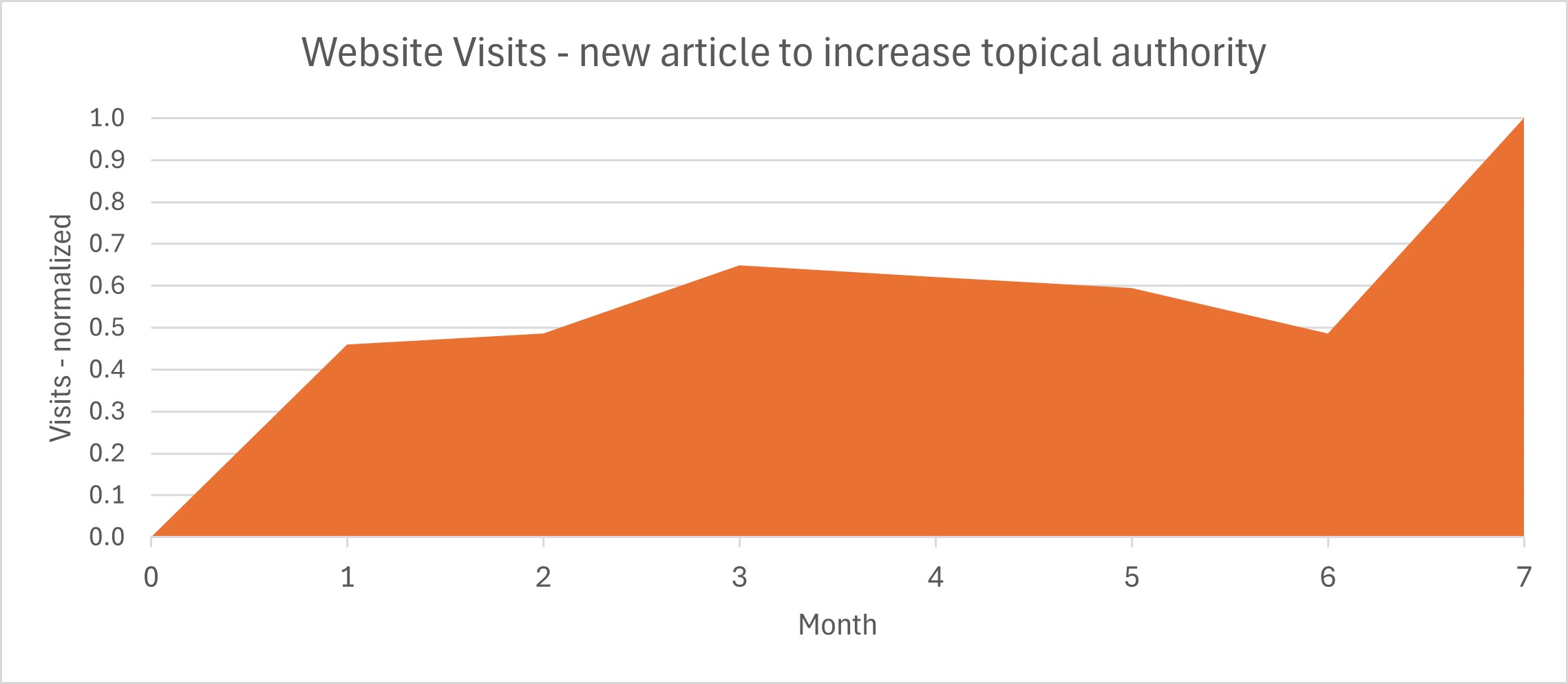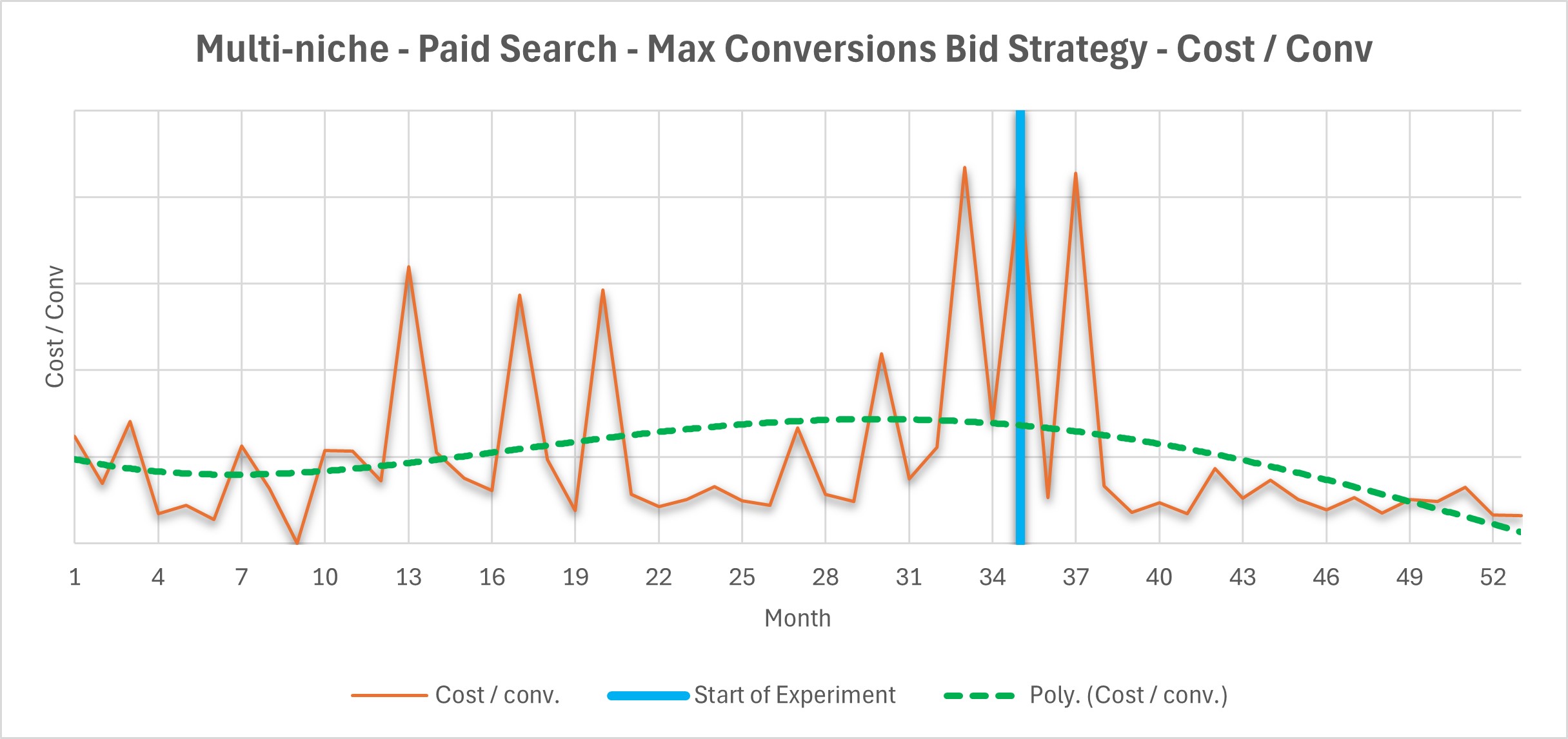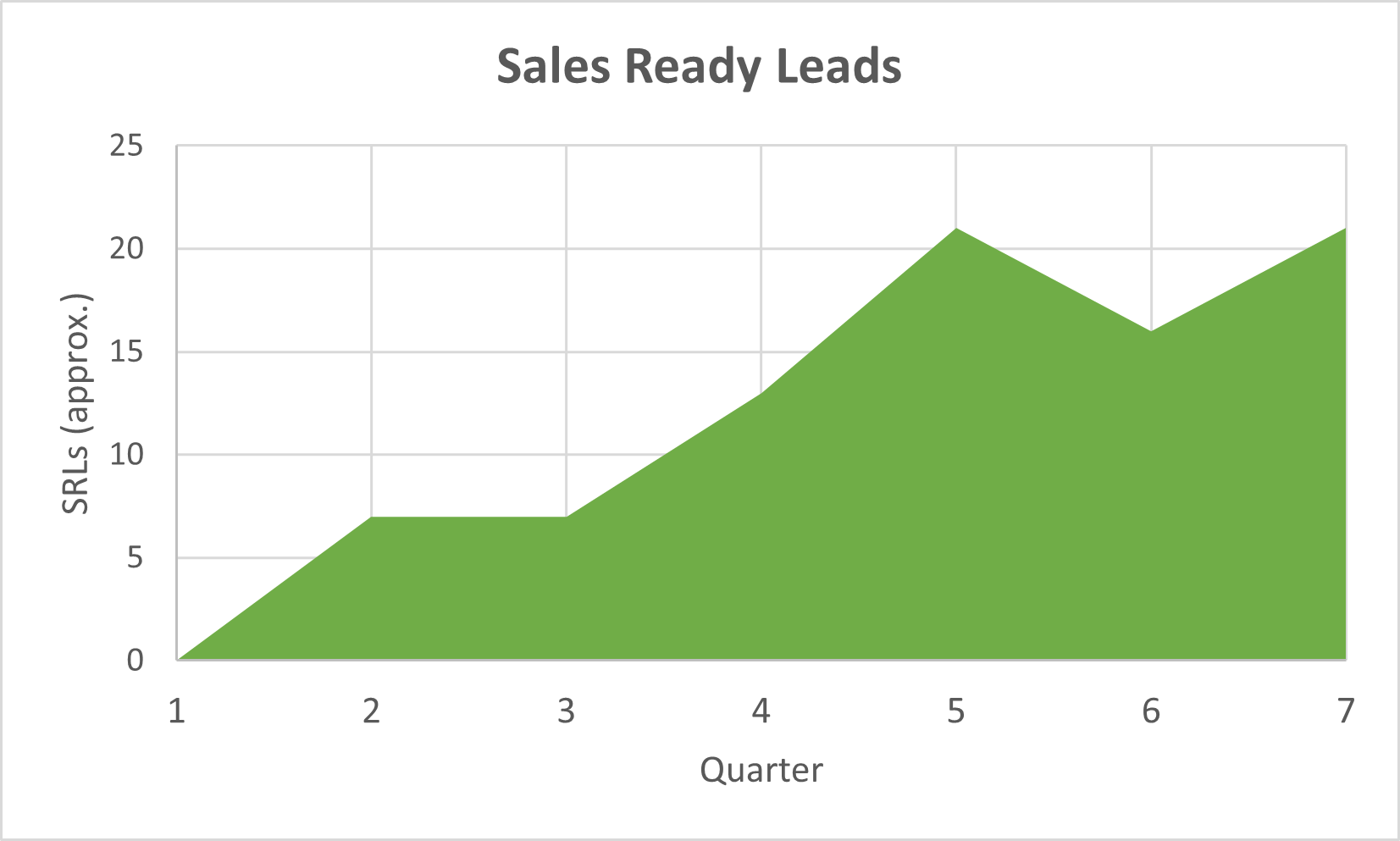Good and bad marketing ideas for engineering companies
Thoughts from an engineer
Yeah, that’s right, I’m an engineer… at least I used to be. Though I’ve been told many times: “once an engineer, always an engineer”. I suppose at some level that’s true. I certainly mostly still think like an engineer, for better AND for worse 😊.
Last updated: September 12th, 2025
Interested in marketing for your engineering company? Need some ideas?
Let’s first bound “engineering company” to make sure we’re on the same page.
These ideas are primarily intended for engineering services companies that design / develop hardware and/or software that either:
- is the product,
- is a subsystem to a product,
- or used to support business operations or manufacturing.
This includes the likes of:
- product development companies,
- software development companies,
- industrial automation companies, etc.
Many of these ideas can also apply to other types of engineering services companies.
Company size makes a difference as well. This article is focused on small’ish engineering companies of less than a couple hundred employees.
Let’s dive in.
Bad marketing ideas for engineering companies
Since you’re interested in marketing ideas, I thought it would be a good idea to point out a few marketing ideas that I consider to be not so good (in case you’re considering them). I won’t dwell on these, but I want to at least get them out there briefly.
Here we go…..
Bad idea – Just write about what you know about.
A pretty common instinct for engineering companies.
Don’t do it.
This is a recipe for disaster.
As a seasoned engineer, you’ve got a lot of pent up knowledge in that head of yours. You could probably spend the next 7 years writing about something new every couple-few weeks.
Don’t do that.
Why? Because you’re likely to either start writing about:
- things no one cares about
- things DIYers care about
- things you’ll never stand a chance to show up for
You need to get your ducks in a row on some things first. Namely:
- What are your niches?
- How do you hope to engage potential clients?
Bad idea – Having ChatGPT (or other LLMs) create your articles for you
Look. We humans are lazy. I get it.
It seems so much easier to just give ChatGPT (or Gemini or some other LLM) a solid prompt and a couple minutes later have an article ready to publish. There are several problems with this, but just homing in on the effectiveness, in the long run this won’t work.
Why?
Because you’re regurgitating the consensus. You’re mainly rehashing what’s already out there on the internet. No new insights. The information gain is lacking.
On top of that, you’re not expressing your company’s point of view. If you’re trying to resonate with real people, there’s going to be a mismatch between who you are and who your customers think you are. That won’t play out in a positive way.
Does that mean that you shouldn’t leverage ChatGPT at all during your article creation process?
No. However, the way I think you should use ChatGPT to facilitate article creation is a nuanced and evolving topic, so we won’t get into that right now.
Bad idea – Modeling the marketing you’ve seen in your personal life.
We’re bombarded with advertising throughout the day, from the time you check your phone when you wake up, to the time you check your phone when you go to sleep. If you’re involved with doing marketing for your engineering company, it’s only natural to be biased by what’s constantly being put in front of you.
So what’s wrong with trying to leverage the techniques you see?
Several things:
- The decision-making process for buying consumer goods (e.g. lipstick, cars, soda, chips) is very different than for engineering services. It’s not that there aren’t similarities; it’s just that there are enough differences that you ought not make assumptions based on what you see from consumer marketing.
- You’re seeing outputs, not the detailed process. You don’t know how what you see is being leveraged.
- You haven’t been given the “why” behind the “what”.
Bad idea – Assume that you can market the way big tech companies do.
You (mostly) can’t.
Whether you recognize it or not, large tech companies are essentially playing a different game than you can afford to play.
The amount of money they spend on trade shows, advertising, and marketing expertise would blow your mind.
Many times you don’t need to compete with them. You’re operating at a different layer, and often times in niches that they don’t want to be in because the market isn’t large enough.
Bad idea – Try to be “omnichannel”
Ouch.
Death by a thousand cuts.
I’m not sure how common this suggestion is anymore, but just in case you’ve heard that you need to be everywhere, let me offer up a counterpoint.
Not only do you not need to be everywhere, you actually need to NOT be everywhere.
Why?
Because you can’t afford to be.
If you try to support all channels, you’ll be mediocre… at best. You don’t have the bandwidth, nor the budget.
Instead, select 1 primary channel and 1-2 secondary channels at any point in time.
Good / better marketing ideas for engineering companies:
Ok, now on to some ideas where I think you should consider focusing your energy.
Find ~1-3 niches to experiment with.
The main reason to find some niches are:
- to find a smaller pool to swim in, and
- your clients will want you to.
Framing engineering companies as “product design”, “industrial automation”, or “software development” are too broad for small’ish engineering services companies.
Larger engineering services companies can get away with staying broad for longer (I’m still not saying it’s a good idea for larger companies to stay broad), but smaller companies don’t have the resources to stay broad.
Focusing on niches allows you to develop deeper expertise than staying broad. Homing in on a smaller set of problems allows you to add more value to a smaller group of potential clients.
Check these out for more:
Don’t like to be annoying or pushy? Try inbound marketing.
Inbound marketing is essentially a method that focuses on positioning yourself ahead of time to attract people when they want help with a particular subset of problems that you’re well-positioned to help with.
These potential customers either want to learn about something engineering-related, or they want to find a company to work with.
Philosophically, I’m a fan of inbound marketing.
Why?
Because it encourages you to focus on being helpful when someone is looking for help. Contrast that with outbound methods that rely on interrupting and pushing yourself in their face.
If you don’t like being annoying or pushy, inbound is worth considering.
Having said that, just like anything complex, there are pluses and minuses. Check out:
- the pros and cons of inbound marketing,
- inbound marketing for engineering companies,
- SEO for engineering – insights and lessons learned,
- SEO services for engineering firms.
Have a sophisticated sales and marketing team? Check out Account-based Engagement (ABE).
If your (presumably technical) salespeople are outgoing and sophisticated sellers (i.e. they’re very good at getting introductions to new people, connecting dots, and building complex and strategic relationships), consider ABE.
ABE is an “all hands on deck” sort of strategy, involving significant involvement from company leadership, sales, and marketing. If all 3 of these areas are not fully engaged in ABE, that’s a showstopper.
Even though the sales team will be front-and-center with an ABE strategy, the marketing team needs to be sophisticated as well. On top of that, depending on the approaches being leveraged, the tech stack can get quite expensive as well.
Check out ABE vs inbound for a data point.
Get more serious about your partner channel
Are you a certified partner for one of the tech platforms that you leverage to get the job done?
If not, you can ignore this one.
If you are, put some energy and effort into figuring out how to better leverage this channel for sales leads:
- Figure out what motivates the partner to provide you leads.
- Figure out what their process is for routing leads and align with it.
- Figure out who else (by name) you need to build a relationship with and start building.
- Determine where you stand in the partner ecosystem.
- Figure out if the partner needs any new content.
- Be cognizant of how the partner wants to work with you throughout the sales process.
Check out partner channel sales and marketing tips for more detail.
Sell more to your existing clients
If you have clients that have at least a couple hundred employees, there’s a decent chance that you could be doing more work for them.
Sit down and research:
- Are there other groups within the division you’re working with that you could be helping?
- Are there other divisions that you could be helping?
- Specifically, how can you help them?
- What proof points do you have?
- Who do you know that could help connect you?
See how to sell to existing customers for more.
Practice exposing your company’s authentic personality more in your content.
There is some foundational functional information that your customers want to see. That information is going to look very similar relative to other companies that do what you do.
To help differentiate yourself, start layering the authentic personalities of your people on top. This may turn some potential customers off, but that’s ok.
Better to align with a smaller group of people that you actually resonate with, than to be so bland that no one cares about what you have to say.
Of course, you want to do this in a way that doesn’t feel too chopped up across your site, so a bit of thought needs to be put into how to go about this.
Start small. Inject some actual stories as the opportunity presents itself.
Focus on a single primary marketing goal
Here are a few marketing goals to choose from:
- Awareness,
- leads,
- sales support.
Pick one. The other two areas will often benefit from the primary, but your goal will drive different activities and content (types and topics).
My guess is, if you’re a small engineering services company, you’ll want to focus on leads as your primary goal, but that doesn’t have to be the case.
Start gathering feedback from your clients.
You need feedback to gain a better understanding of:
- what you need to change or improve as a company, and
- where you add the most value to your clients.
You then want to take that information in aggregate and use it to improve not only your business, but your messaging and content.
This can be challenging to stick with over long periods of time.
To improve:
- collect the info in a single location, and
- set biweekly reminders to gather more insights.
Refocus your articles toward teaching vs selling
A lot of people think articles should focus on selling.
For engineering SMEs, this is a recipe for disaster.
The term “selling” means something negative to a lot of people, especially analytically-minded people like engineers.
The reality is that all humans “sell” frequently. We just don’t think of it that way. From our early days trying to convince our parents to let us watch a new show or play a new video game. We’ve all been “selling” for most of our lives.
However, since the connotation is generally negative, it tends to make us act in a nonauthentic manner.
The kicker is, to sell well, you need to be yourself.
When you’re authentic, that shines through. Focus on teaching and you’ll feel better about what you create, and the reader will get a chance to see your more authentic self and get more value out of what you wrote.
Next Steps
That should get your mind churning. RocLogic provides inbound, content, and search marketing services for engineering companies. If you’d like help mark putting some of these ideas into action, feel free to reach out for a chat.
Quick poll – Vote to see how your peers voted
If you’re deep in learning mode, check these out:
- Inbound marketing for engineering companies
- Content Marketing for Engineering
- Marketing for engineering consulting companies – tips and insights
- How to Sell Engineering Services
- Lead generation for engineering companies – tips and insights
- Lead-focused SEO for engineering – insights and lessons learned
- Advertising for engineering firms
- 5 roadblocks that stop tech services companies from moving forward with their marketing
- Marketing plans for engineering companies
- Creating a no-BS marketing strategy for your engineering company
- Marketing for engineers – transitioning from engineering to marketing
- The engineering services market – insights and opinions
- Which sales methods irritate customers most (and least)
- Inbound marketing strategy for industrial engineering services companies – 23 niches explored







